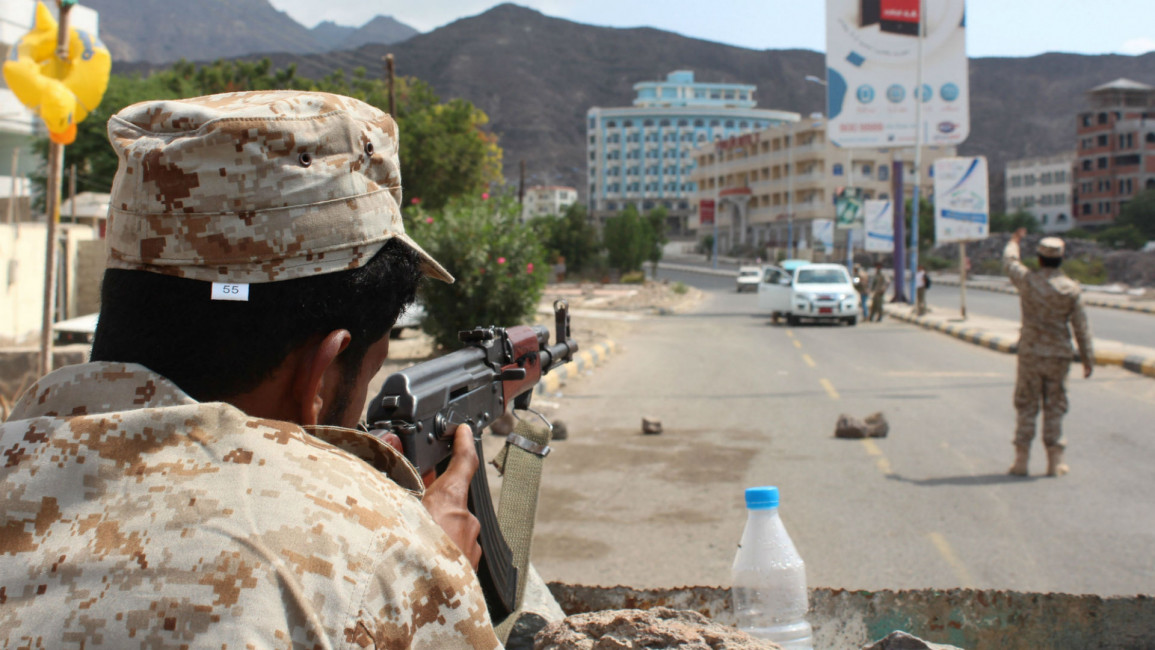Senior Yemeni colonel assassinated in Aden
A Yemeni colonel was assassinated by masked gunmen in Yemen's southern port city of Aden on Friday, while heading towards a mosque to attend Friday prayers.
Ali Muqbil Awadh, a senior officer in the country's intelligence services, was shot dead while driving through the Mansoura district of Aden.
No group has yet claimed responsibility for the attack.
However, al-Qaeda and Islamic State group militants have taken advantage of 19 months of civil war in Yemen to expand their presence in Aden, where the embattled government is based.
The temporary capital experienced an increase in violence amid growing security concerns in recent months, with several assassination attempts targeting the city's officials, as well as attacks on security headquarters and soldiers.
Last week, Yemen's exiled Prime Minister Ahmed bin Dagher returned to Aden just days after President Hadi announced the relocation of the country's central bank to the southern port city.
Seven ministers joined the prime minister on his flight back to the southern port city - his first voyage since his predecessor Khaled Bahah fled Aden in October last year.
He left the country after surviving a bombing attack along with ministers.
Hadi's government fled to Saudi Arabia after Yemeni rebels overran Sanaa and other major cities - including Aden - two years ago.
Saudi Arabia formed an Arab coalition just six months later to push back rebel forces and reinstate the internationally-recognised government.
Coalition forces - with the support of local resistance groups - managed to regain control of Aden, however, large parts of the country remain under Houthi control.
UN figures suggest more than 10,000 people have died since the Saudi-led coalition began its military bombardment in March 2015, a much higher figure than the 6,000 previously reported.
Attempts to resolve the conflict failed in August when UN-sponsored peace talks in Kuwait ended with no results after two months of dialogue.



